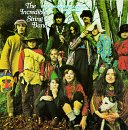| Protozoa Haiku | Protozoa Links | ||||
| Protozoa in Popular Culture | |||||
| Music to Soothe Savage Protozoans | Protozoa Equipment and Books | ||||

© 2002 Hermester Barrington

Back to The Cenotaph of the Jackalope!
This page hosted by
Get your own Free Home Page
|
They say before he went away
He got it all on tape Giant paramecium And big amoebae shapes Electric Rock Music |
|
“Idealização da humanidade futura” Augusto dos Anjos Rugia nos meus centros cerebrais A multidão dos séculos futuros – Homens que a herança de ímpetos impuros Tornorá etnicamente irracionais! – Não sei que livro, em letras garrafais, Meus olhos liam! Ho humus dos monturos, Realizavam-se os partos mais obscuros, Dentre as genealogias animais! Como quem esmigalha protozoários Meti todos os dedos mercenários Na consciência daquela multidão… E, em vez de achar a luz que os céus inflama, Somente achei moléculas de lama E a mosca alegre da putrefação! Eu e outras poesias |
|
Our planet, before the age of written history,
had its races of savages, like the generations of sour paste, or the animalcules that wiggle and bite in a drop of putrid water. Who cares for these or their wars? Ralph Waldo Emerson, in his journal, July, 1844, cited in Selections from Ralph Waldo Emerson, edited by Stephen E. Whicher, p. 277. |
 A Confederacy of Dunces
A Confederacy of Dunces
 The Hangman's Beautiful Daughter not only inspired me to have a fantastic dream about protozoa the first time I heard it, but also contains the wonderful "A Very Cellular Song," which features life as an amoeba as an atemporal but passionless utopia.
The Hangman's Beautiful Daughter not only inspired me to have a fantastic dream about protozoa the first time I heard it, but also contains the wonderful "A Very Cellular Song," which features life as an amoeba as an atemporal but passionless utopia.
 The Monster from the Ocean Floor
The Monster from the Ocean Floor
 The Blob - Criterion Collection
The Blob - Criterion Collection
 The Angry Red Planet
The Angry Red Planet
 "From Beyond", in
The Lurking Fear and Other Stories
"From Beyond", in
The Lurking Fear and Other Stories

| Protozoa Haiku | Protozoa Links | ||||
| Protozoa in Popular Culture | |||||
| Music to Soothe Savage Protozoans | Protozoa Equipment and Books | ||||

